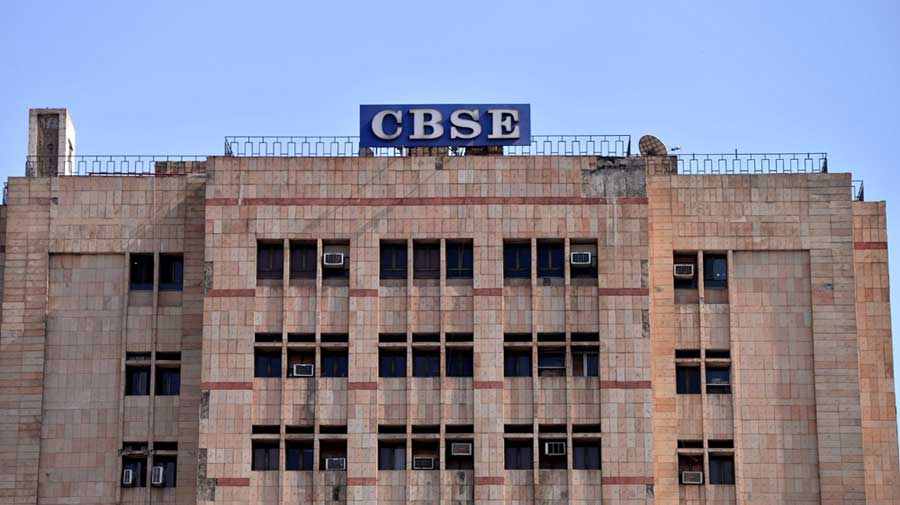The Central Board of Secondary Education on Monday told the Supreme Court it would announce the Class XII results on July 31 and hold an in-person examination for aggrieved students between August 15 and September 15 if conditions are conducive.
It said it had formed a committee to deal with complaints by students unhappy with the marks awarded to them. It also provided details and clarifications about the “standardisation” methodology it would adopt to ensure the schools were not overgenerous or too stingy in evaluating their students.
The CBSE had on Thursday submitted an affidavit in the apex court outlining how, with the Class XII board exams cancelled because of the pandemic, its schools would award marks to the students on the basis of their Class X boards and internal Class XI and XII exams.
The court had then asked the board to provide for a dispute resolution mechanism for students aggrieved with the marks awarded, and specify the dates for declaration of results and the conduct of the optional, in-person exam.
On Monday, the board said the physical examination will be conducted “only in the main subjects as and when conditions are conducive” and the marks obtained “will be treated as final for those who opt to take this examination”.
Any student looking to improve their marks can take the physical exam, and so can “private/patrachar (correspondence course)/2nd-chance compartment candidates”.
Standardisation
On Thursday, the CBSE had clarified that the students’ results in their Class X boards and Class XI and XII exams would respectively be awarded 30 per cent, 30 per cent and 40 per cent weightage while calculating the theory marks in each subject.
The practical-cum-internal assessment component would reflect the exact marks awarded under this head in Class XII.
However, since the Class XI and XII marks would have been awarded by the individual schools themselves, the board had suggested a “standardisation” formula to weed out any arbitrariness.
This was to be done by taking as the “reference year” the particular year out of the previous three years in which the school had performed the best in the Class XII board exams. A result committee formed by the school would then ensure that:
⚫ The average marks awarded by the school in any subject for 2020-2021 are within 5 marks above or below the average score obtained by its students in that subject in the reference year.
⚫ The average marks the school awards its students in 2020-2021 across all the subjects should not exceed the overall average marks obtained by its students in the reference year by 2.
On Monday, the CBSE sought to clarify any doubts about the process, saying:
⚫ If only two years’ data for a school is available, the best performance out of two years will be the reference. If just a year’s data is available, that year will be the reference year.
⚫ If a school’s students are clearing Class XII for the first time, the CBSE will provide the past three years’ district, state and national averages of schools from the same category — private, aided, KVS, Navodaya, and the like. Based on this, the reference-year figures will be worked out.
⚫ Schools that have switched over from other boards will use their past performance under their previous boards subject to approval by the CBSE.
⚫ If any school has 10 or fewer students in any subject, it need not take into account the subject average from the reference year but only the overall average of all the subjects taken together.
⚫ The CBSE will provide the schools with the broad distribution of marks obtained by their students in each subject each year — for instance, the proportion of the schools’ students obtaining an aggregate score above 90 per cent.
Once the school result committee finalises the marks on the basis of exams, it must ensure the scores largely match the broad distribution provided by the board.
Online check
To make it easy for the schools, the CBSE will prepare an online system in which the schools can enter the marks awarded and check whether these conform to the historical distribution.
If there’s a mismatch, the result committee must revise the marks according to a consistent and objective criterion that should be spelt out.
Built-in checks for marks distribution as well as subject-wise average marks will be available in the online system. Only if the marks awarded by a school are consistent with the board policy will the CBSE portal allow them to be uploaded.











